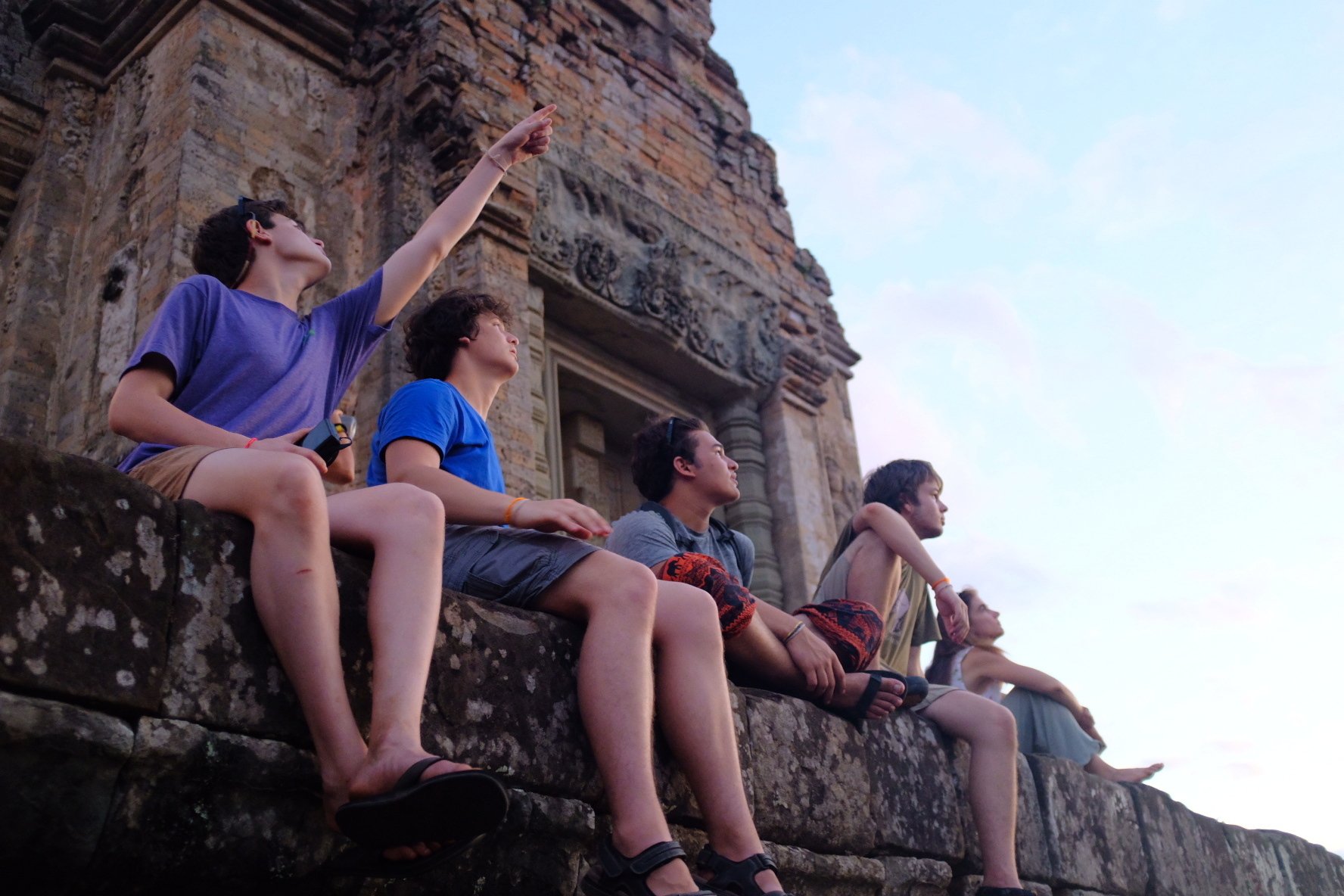“Experiential Education is a teaching philosophy that purposefully engages learners in direct experience and important self reflection to gain new skills, clarify values, develop character, increase knowledge, and expand an individual’s capacity and intrinsic motivation to be a Global Citizen.”
Imagine waking up at 4 A.M. and feeling the sun on your face as you look out to expansive views of the Pacific Ocean, the highest peak in east Bali, and thousands of acres of lush cashew farms. Envision sitting between two batu candi (lava stone etched into ornate temple structures) while admiring the accomplishment of your group and the beauty of the world around you. Experiences like this can be ordinary occurrences on a gap semester with ARCC in the Pacific Islands. Being taken from the comforts of your home upon signing up for such experiences will open your mind and heart to new ideas, perspectives, cultures, and people.
When deciding which ARCC program to attend, students often make selections based on activities such as “Orangutan Trekking” or “Installing Water Filtration Systems in Cambodia.” What many students don’t realize is that on any ARCC semester, they are signing up for a learning experience that is distinct from traditional schooling found in Western countries with a four-walled classroom academic setting. With my experience as a classroom teacher and ARCC Gap Instructor, thinking critically about our education systems and how students best learn is a passion of mine. Experiential education is a teaching philosophy that purposefully engages learners in direct experience and important self-reflection to gain new skills, clarify values, develop character, increase knowledge, and expand an individual’s capacity and intrinsic motivation to be a global citizen. Below I will highlight why “learning by doing” and having experiential education opportunities before embarking on higher education is one of the most important choices you can make for your future.
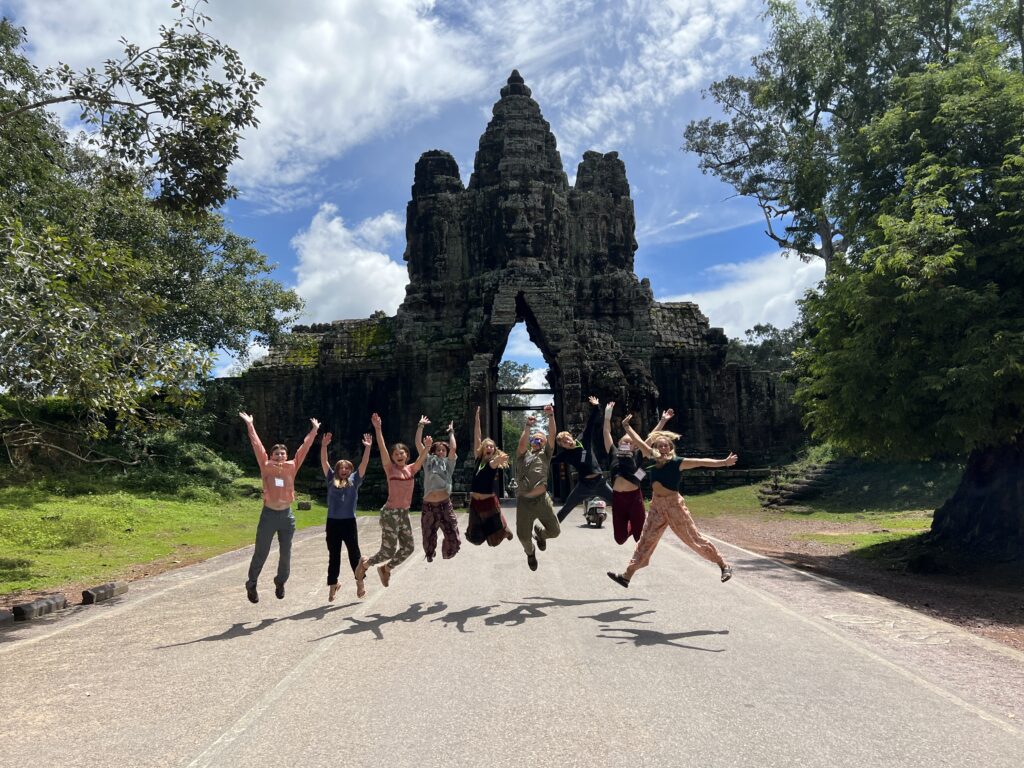
Project Based Learning
Graduating from high school is a huge milestone in a person’s life. As a young adult, you are at a very influential age to learn about yourself, how you affect the world, and what role you have to play in shaping the world in the future. Taking time to step away from the four walls of a classroom to participate in a gap year domestically or abroad fosters an intentional space for you to reflect on your character and values while gaining new skills.
Take, for example, a long-standing project that ARCC contributes to in Kenya: installing solar panels in homes in rural villages that have no electricity. Our students have the opportunity to examine their own living situation at home, counting the number of appliances and light bulbs used to measure the amount of electricity needed to run their home. They then learn how solar panels work, constructing their own set of panels to be installed while learning how to a variety of different tools, and collaborating to assemble the solar panel box to connect to the battery. This is just one day of the program, and the students are already gaining a lot. Students are using new tools with their hands, engaging in new tasks that may feel impossible yet become reality through collaboration, and learning about their own energy consumption compared to the communities in the Great Rift Valley of Kenya where they are working. Math, electrical engineering, problem-solving skills, critical thinking, and working with others are all used to gain these new skills. A sense of great personal accomplishment is fulfilled through the completion of this project.
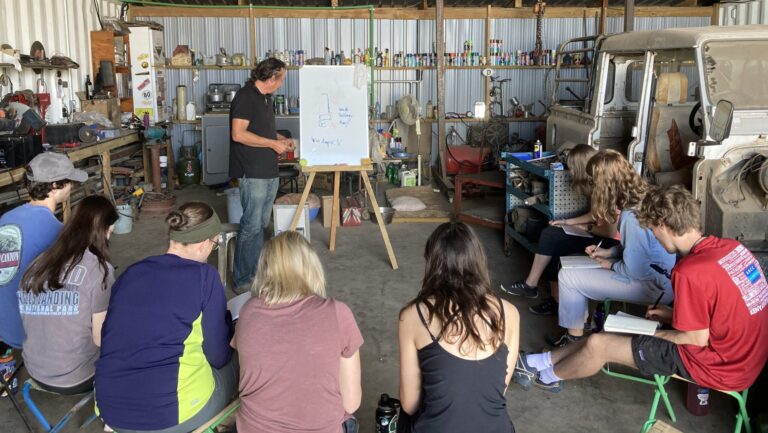
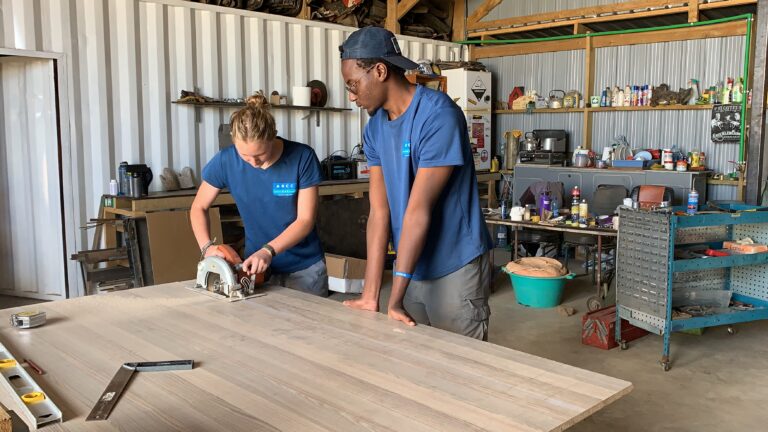
Skills Through Experience
Gaining hands-on experience and new skills through such projects are what we call “hard skills.” Students come away from a project being able to say, “I can now work with a circular saw to cut and shape a solar panel for a small home.” Another aspect of working on projects like this is analyzing our mindset and what we value as individuals and as a group. This is what we call “soft skills.” Experiential education makes space for developing both hard and soft skills through engagement and reflection. Recognizing how far you can push yourself and realizing you’re capable of more than you originally thought is a shared experience many students have on their programs with ARCC.
In Kenya, our group recognized the power of collaboration and lifted each other up through every new experience, seeing the value in how each individual could uniquely participate. A student with a detail-oriented “tinkerer” mindset was happy to help install the wiring, while a student who loved physical challenge and balance climbed a ladder to help drill the lightbulb casing to the ceiling. Everyone stepped into new roles that they had never held before, requiring grace and patience as they learned together. Experiential education opportunities like this encourage students to take time to reflect on who they are, how they motivate themselves, how they contribute to a group, and in what ways they want to grow. Practicing this type of reflection is an incredibly valuable skill, without reflection, there are limited opportunities for growth.
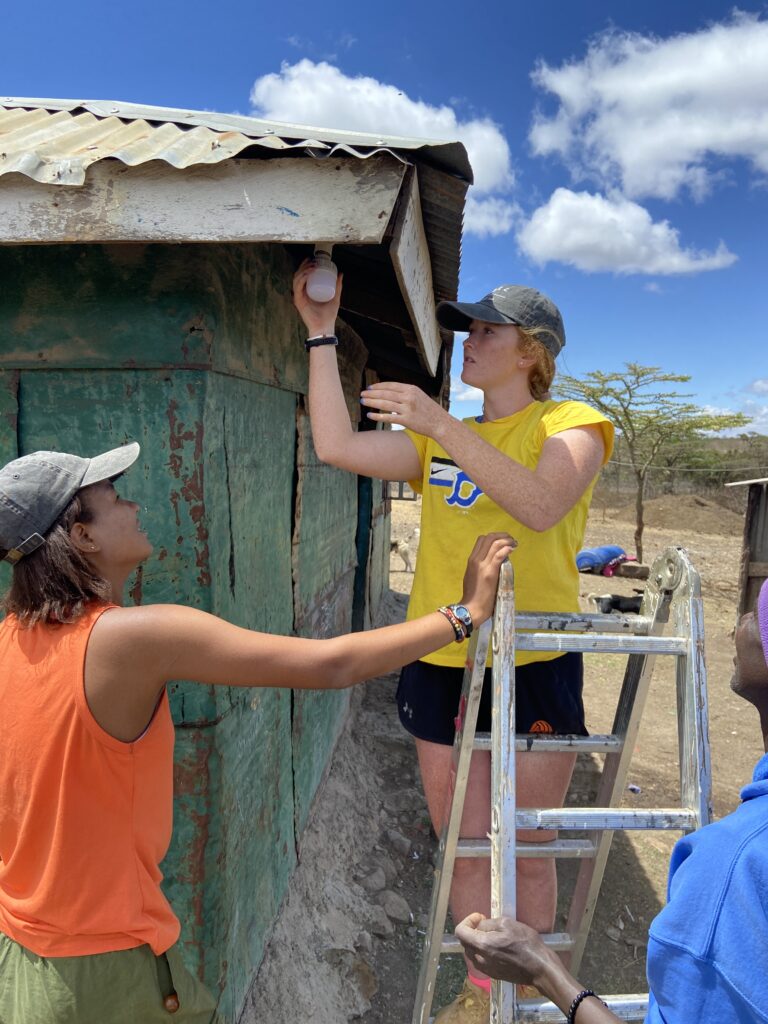
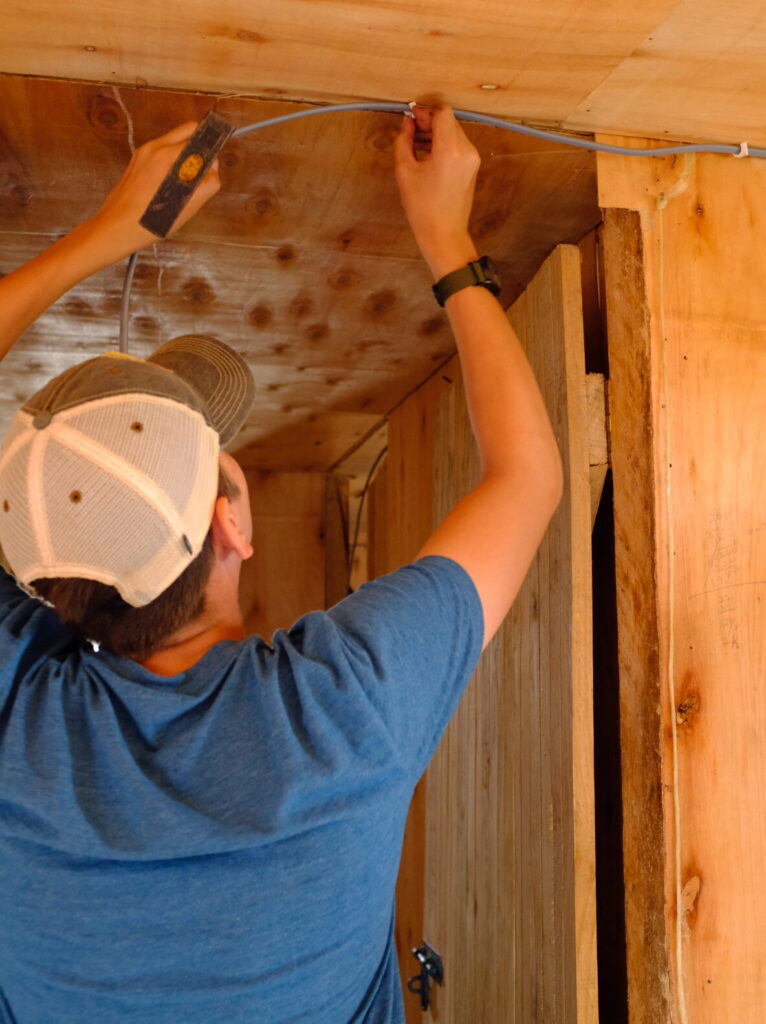
The Power of Human Connection
If you are lucky, many schooling opportunities today have some component of experiential education woven into the curriculum. However, these opportunities are often limited to a week-long field trip or getting outside with your class a few times a year. According to Forbes, many students struggle when they leave college in a theory-based environment and have a hard time applying it to real-world expectations. This takes practice like anything in life. Allowing space between high school and your higher education pursuits provides an opportunity to learn hands-on skills and interacting with communities around the world gives you a clearer picture of how you are connected to the greater global community.
Another valuable skill that comes from a gap semester is the power of human connection. ARCC groups spend 70 days together, day in and day out, learning and growing through every experience. We sleep in close quarters, have to work through personal conflict, find the value in mediation and conflict resolution, discuss privilege, and open up through vulnerable conversation. Learning how to lean in and count on others, while also learning how to set boundaries and clearly communicate needs is an invaluable skill that can be applied infinitely in your future. Past gap semester students have often shared with me how the skill of conflict mediation helped them work through issues with their roommates, class projects, and their future work environments. The knowledge that comes from practicing these skills and having a greater understanding of how to best work with and support people will help you in school, with family relationships, and your future partnerships.
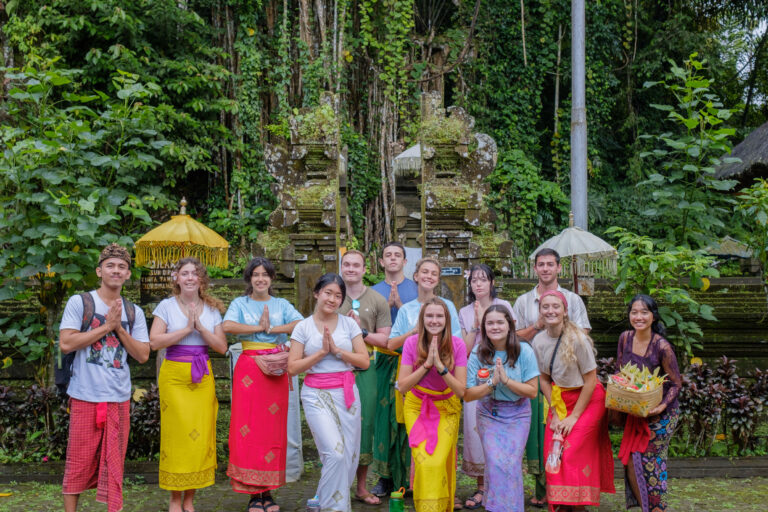
Reset and Refocus on Learning
Having a sound combination of self-reflection, curiosity, applying your knowledge to real-world context, and engaging with the power of collaboration from your gap semester will set you apart from others. Gap semester programs open your eyes to new ways of living and make space to reflect on your own life, privilege, and purpose. You will learn more about yourself from what you may want to study and pursue professionally in the future to how you engage with the world and how you can best make a difference. While walking up a steep volcano in east Bali, our group really leaned in and needed to support each other to complete this task. Reaching a summit alone is possible, but reaching a summit alongside your traveling family teaches you resilience, the power of group support, and how you are truly capable of achieving more than you think is possible.
There are endless gap semester examples that I can share, but if you can, I believe you should pursue them yourself before moving on to higher education. The importance of weaving experiential education into your learning timeline before attending higher learning is my hope for every young person. You will be glad you took this time in your life to prepare yourself more holistically for your future, you won’t regret it!
ARCC Programs has offered programs for students for over 40 years. With international semester programs on five continents, there is something for everyone. Find a gap semester program on our website or request a catalog today.
